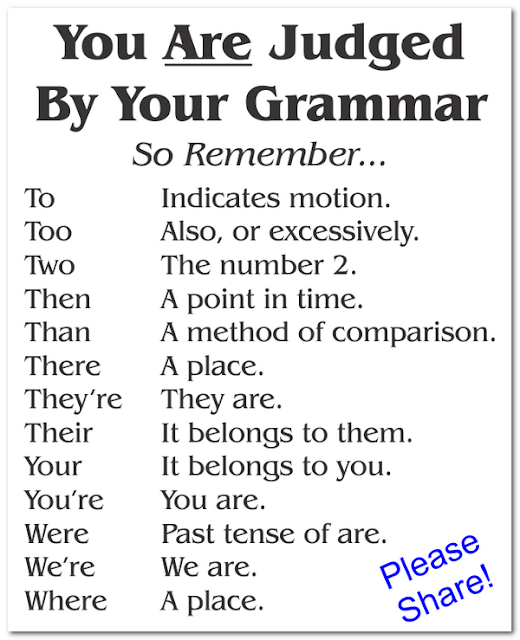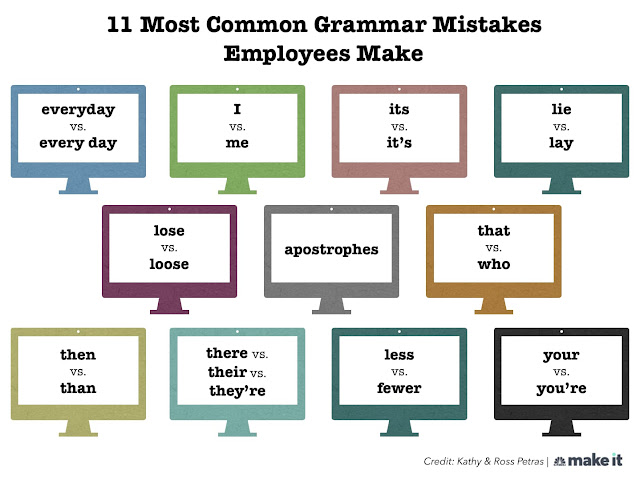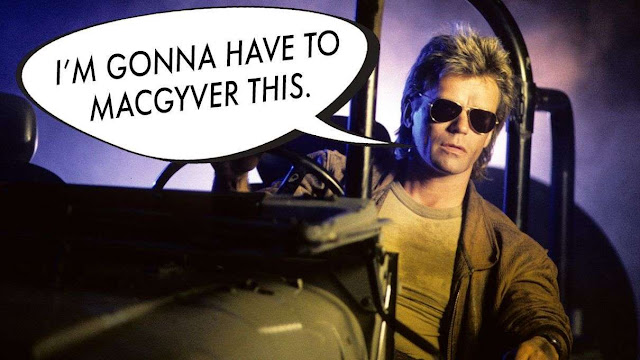 |
| Azura Chronicles award-winning scifi-romance series |
The conversation, on some Facebook groups for authors this month, turned to common mistakes in English grammar. As a wordsmith, I cringe at typos, misspellings, and grammar blunders in professional books. And I’m talking about simple mistakes, not wrong tenses, dangling participles, or run-on sentences. In the media arena, the language of Shakespeare is taking a beating. But it’s a lot worse than you would expect.
Here is a reminder of a few common mistakes… are you guilty of those? Maybe you should stick this note to the side of your tablet or computer screen.
And these are only a few. There are many more. I particularly resent “it’s” instead of “its” and “than” instead of “then.” There is also “lie” and “lay,” “affect” and “effect,”
I can easily forgive readers and casual posters for not remembering their schooling. But if you make any of these common mistakes on your resume, for instance, you may well have forfeited the job.
And if you run an ad for your business with a mistake in it, the return will be so low, you’ll lose your investment in advertising.
Furthermore, I see these common mistakes repeated by newscasters, on advertising spots, on printed ads, and in articles by news writers and other professional people of the spoken and written word.
What about “verbing” or “verbification?”
There is also the new tendency of making verbs with nouns, called “verbing” by the Oxford University Press, or also verbification. This is part of normal language evolution. When there is no verb to express the action, you can use a noun as a verb. “To parent,” for example, has become part of the vocabulary, like “to vacation.”
It used to be that the printed word was respected and valued. Nowadays, anyone can write and print anything, without any knowledge of proper language, grammar, or spelling. Worse, they do not hire an editor. If it’s important enough to say or write for the public at large, it’s important enough to be edited.
Strong Heroines, Brave Heroes, cats
http://www.vijayaschartz.com
amazon - B&N - Smashwords - Kobo - FB

















The typo can be hard to spot since you knowwhat you've written even if you used the wrong word. I once had an error in the first line of a manuscript. I proofed the mss three times. A copy editor and a content editor proofed the book and none of us caught the mispell since all the letters were there but not in the proper order.
ReplyDeleteYep, it's easy to miss some typos, especially when we know what word should be there and we gloss over it without noticing. That's why editors are so important.
ReplyDeleteAs i writer, I try my best, but after a while, I see what I think I wrote, not what I actually wrote LOL You need a good editor, but even good editors will occasionally miss an error. I accept there might be a few typos in the books I write or I read, but there shouldn't be one on every page...or worse, one every paragraph.
ReplyDeleteI fully agree, J.S. I once read a book from a large NY publisher that had an average of 5 typos/mistakes/errors per page. I couldn't finish it. It occurred to me later that it might have been an unedited advanced copy, since I won the book at a writer's conference raffle. I sure hope that was the case.
ReplyDeleteI am glad to know I am not the only one who is bothered by these simple mistakes. But when I miss them in my own ms, I am furious! When I see errors on signs, I want to go into the business and tell them to change their sign. So far, I haven't.
ReplyDelete